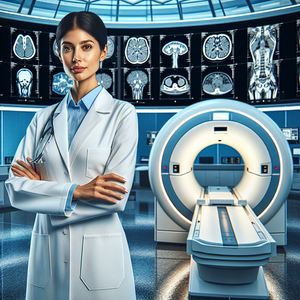Exploring the Intersection of Technology and Patient Care in Imaging Careers

Artificial intelligence is at the forefront of revolutionizing diagnostic imaging. AI-driven algorithms enhance image analysis, improve diagnostic accuracy, and increase operational efficiency. These technologies can assist sonographers by automatically analyzing ultrasound images, detecting abnormalities, and flagging potential issues for further evaluation by radiologists. This not only streamlines workflows but also enables more timely and accurate diagnoses, ultimately improving patient care.
Telemedicine: Expanding Access to Care
Telemedicine has gained significance as a critical component of healthcare delivery, especially in the wake of the COVID-19 pandemic. For imaging professionals, telemedicine presents unique opportunities to engage with patients and healthcare teams remotely. Ultrasound technicians can conduct virtual consultations, guiding patients through preparation for ultrasound procedures or discussing results with physicians from a distance.
New Job Roles and Responsibilities
As technology continues to evolve, new job roles are emerging within the field of diagnostic imaging. Positions such as tele-sonographers, who perform ultrasounds remotely, and imaging informatics specialists, who manage and analyze imaging data, are becoming more common. These roles require a blend of clinical expertise and technological proficiency.
Staying Competitive in a Technologically Advanced Field
To remain competitive in this rapidly changing environment, ultrasound technicians must commit to lifelong learning and professional development. Engaging in continuous education through workshops, webinars, and certifications in emerging technologies will be essential.
The intersection of technology and patient care is reshaping the landscape of imaging careers, particularly for ultrasound technicians. As AI and telemedicine become integral to healthcare delivery, professionals must adapt to new technologies, embrace innovative roles, and continuously develop their skills.
Tele-sonographer
Telehealth companies, hospitals expanding telemedicine services, outpatient imaging centers
Core Responsibilities
Perform ultrasound examinations remotely via telehealth platforms, providing real-time guidance to patients.
Collaborate with radiologists and healthcare teams to discuss findings and ensure comprehensive patient care.
Required Skills
Proficient in ultrasound technology and techniques, with a strong understanding of anatomy and pathology.
Comfort with video conferencing tools and electronic health record (EHR) systems for remote consultations.
Imaging Informatics Specialist
Healthcare organizations, radiology departments, health technology firms
Core Responsibilities
Manage and analyze imaging data, ensuring accurate capture and storage for optimal patient care.
Collaborate with IT and clinical teams to integrate imaging systems with electronic health records for streamlined workflows.
Required Skills
Strong understanding of data management, healthcare analytics, and imaging software applications.
Ability to communicate effectively with both technical and clinical personnel.
Diagnostic Medical Sonographer with AI Expertise
Hospitals, imaging centers, research institutions
Core Responsibilities
Utilize advanced AI tools to enhance image analysis and diagnostic accuracy during ultrasound procedures.
Train and support colleagues in the effective use of AI technologies in clinical practice.
Required Skills
Extensive knowledge of ultrasound techniques combined with familiarity with AI-driven diagnostic tools.
Experience in data interpretation and the implications of machine learning in healthcare.
Ultrasound Education Coordinator
Academic institutions, training centers, healthcare organizations
Core Responsibilities
Develop and implement educational programs for ultrasound technicians, focusing on new technologies and best practices.
Conduct workshops and training sessions on the latest advancements in ultrasound and telemedicine.
Required Skills
Strong background in ultrasound technology and educational methodologies.
Excellent communication and organizational skills to effectively engage diverse learning groups.
Clinical Applications Specialist for Imaging Technology
Imaging equipment manufacturers, healthcare technology companies, hospitals
Core Responsibilities
Provide expertise and support for the implementation and use of imaging technologies in clinical settings.
Work closely with healthcare providers to optimize imaging workflows and improve patient outcomes.
Required Skills
In-depth knowledge of imaging systems and software, alongside strong problem-solving abilities.
Ability to train clinical staff on new technologies and provide ongoing support.


